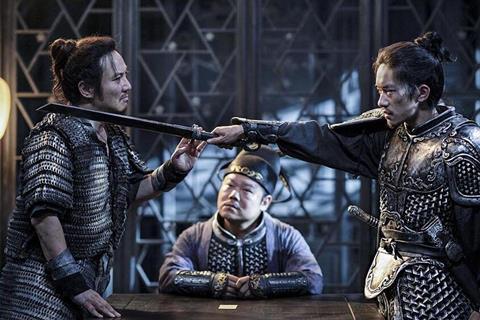
The Far East Film Festival (FEFF), held in the Italian town of Udine, has revealed the full line-up for its landmark 25th edition, which is set to include appearances from filmmakers Johnnie To, Watanabe Hirobumi and Jang Sun-woo.
Running April 21-29, the festival will open with a double bill: He Shuming’s Ajoomma, the first co-production between Singapore and South Korea; and black comedy Bad Education by Taiwan’s Giddens Ko. It will close with Zhang Yimou’s Chinese blockbuster Full River Red.
The festival will screen 78 Asian films from 14 countries, including nine world premieres. The total figure is up six titles on last year and represents a record number for FEFF.
“The selection shows in real time how the cinemas of East and South East Asia have re-emerged from the gruelling period of the pandemic, not all in the same way and not all with the same results,” said a statement from the festival.
Titles from Hong Kong include box office hit A Guilty Conscience, with director Jack Ng set to attend the festival for the film’s European premiere. As a fresh wave of rising filmmakers emerge in Hong Kong, FEFF has grouped six titles by debut directors under a single banner alongside Anthony Wong’s Sunny Side Of The Street and the world premiere of Amos Why’s Everyphone Everywhere.
Organisers stated how the cinematic powerhouse of South Korea “limped out of the pandemic with audiences halved, cinemas transformed into gyms, dozens of films stuck awaiting a release date, and financial capital moving from cinema to TV”.
But, they added, this is just “a temporary setback” as shown in its selection that includes Kim Jin-young’s horror The Other Child, An Tae-jin’s costume drama The Night Owl, and Lee Hae-young’s spy thriller Phantom (set to be released in Italy by Lucky Red).
Marking just the second film from Mongolia to ever be selected by the festival is Janchivdorj Sengedorj’s coming-of-age comedy The Sales Girl. Three films from the Philippines include horror movie Deleter, by Mikhail Red, dark fable In My Mother’s Skin, the feature directorial debut of Kenneth Dagatan, and web scam comedy Where Is the Lie? by Quark Henares.
From Japan, prolific director Hiroki Ryuichi will present three of his films: Phases Of The Moon, You’ve Got A Friend and 1994’s 800 Two-Lap Runners. Further titles from the country include the international premiere of Otomo Keishi’s The Legend & Butterfly, Masayuki Suzuki’s Yudo, Daishi Matsunaga’s Eogist, and Mayu Nakamura’s She Is Me, I Am Her.
Taiwanese titles in selection include supernatural comedy Marry My Dead Body and Day Off, a portrait of a men’s hairdresser, while films from Thailand include coming-of-age story You&Me&Me, directed by the twin Hongvivatana sisters.
From Malaysia there is Jin Ong’s Abang Adik, that follows the wild lives of two unlucky brothers, and Pitt Hanif’s action film Coast Guard Malaysia: Ops Helang. Indonesian titles comprise superhero feature Sri Ashi by director Upi and Joko Anwar’s horror sequel Satan’s Slave: Communion.
Set to receive FEFF’s Golden Mulberry award for lifetime achievement is Japanese actress Baisho Chieko, whose latest performance in Hayakawa Chie’s Plan 75 will screen at the festival. She has also selected two of her films to play in Udine: Yoji Yamada’s 1969 comedy Tora-san, Our Lovable Tramp; and Yamada’s 1970 melodrama Where Spring Comes Late.
Cult director Watanabe Hirobumi will also attend the festival with two world premieres: Techno Brothers, “a Kraftwerk-esque road movie that pays homage to the Blues Brothers and Aki Kaurismaki”, and Way Of Life, which reflects on memories of lockdown.
To mark the 25th anniversary of FEFF, the festival has assembled its biggest ever retrospective, selecting 21 titles that include Hiroki’s aforementioned 800 Two Lap Runners from 1994, Nonzee Nimibutr’s 1997 Thai gangster movie Dang Bireley’s And Young Gangsters, Park Chan-wook’s 1997 crime comedy Trio, Hsu Hsiao-ming’s Dust Of Angels from 1992, and 1984 crime comedy Teenage Fugitive, written by Tsai Ming Liang.
Masterclasses will be delivered by Hiroki, Hong Kong’s Johnnie To, South Korea’s Jang Sun-woo, and UK-China filmmaker Po Chih Leong.



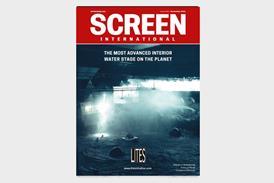
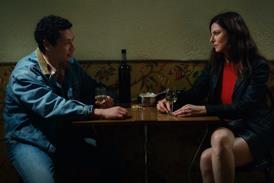


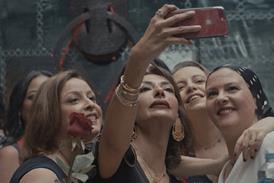








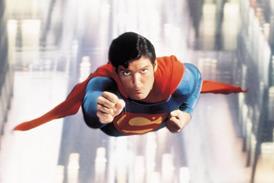








No comments yet